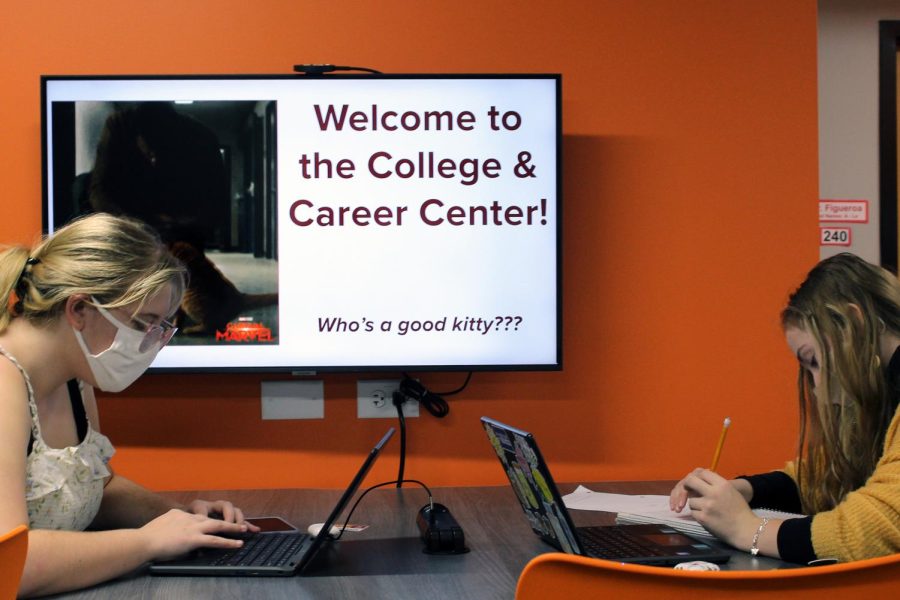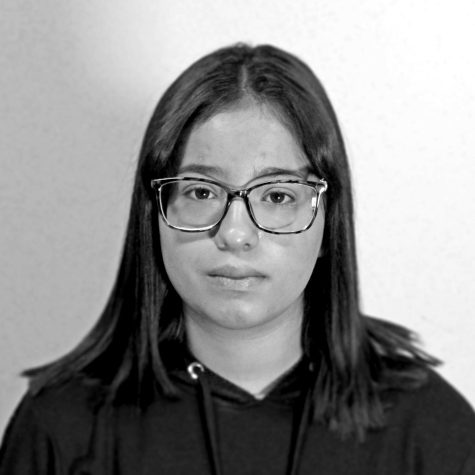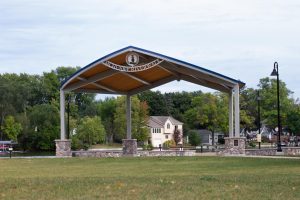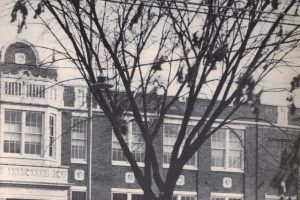Looking forward
The new College and Career Center provides post-secondary resources for students
Students find a quiet place to work in the College Career Center at the Upper Campus on November 11. Named after District 156 Superintendent Dr. Ryan McTague, the space now houses the Upper Campus’s counselors and student services division.
November 16, 2021
At MCHS’s Upper Campus, the new College and Career Center buzzes with activity. Representatives from colleges, careers, and the military, actively discuss their respective institutions. Students ask questions and engage in conversation, as they’re looking forward to the future.
According to Curtis Menke, the College and Career Counselor, the idea for the College and Career Center was born a few years ago as a collaborative idea among the counselors. They immediately proposed the idea to Dr. Ryan McTague, District 156’s’s superintendent. The idea was executed in the 50 million dollar renovation project, and the College and Career Center was named after McTague on.
The College and Career Center houses the counselors, and is an approved blended learning area. A major function of the center is hosting college, military, and career representative visits. Almost on a daily basis, students have the opportunity to ask questions to representatives from various institutions. All of this happens during the school year, making it accessible to every student.
“I’ve met with a couple college reps,” said Sabrina Dale, a senior who has explored the resources offered at the College and Career Center. “It’s really convenient. They make it easy to just go there and sign in. Then you’ll have the period free to ask questions you have.”
Meeting with representatives is crucial in choosing a college or future career, especially with colleges, as some take into account “demonstrated interest” when admitting students. Representatives from colleges, careers, and the military can answer important questions for students.
“It’s one thing to research an institution,” said Menke, “It’s another to learn about it from someone who knows it and loves it. College representatives and military recruiters are, in many ways, sales people for their institute, as their job is to convince students to consider their institution.”
Learning about an institution has been proven to be beneficial to students. The extra knowledge can help students determine what to do or where to go after graduating high school.
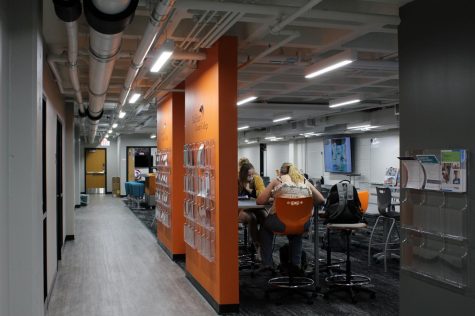
“[Attending rep visits] definitely influenced my decision [on what colleges to apply],” said Dale. “I was not really interested in the University of Springfield. After talking to [a representative], Springfield went way up on my list. It’s my second choice right now.”
While the College and Career Center is especially helpful for college-bound students, it also benefits students considering the military or technical careers.
MCHS hosts representatives from all five branches of the U.S. military throughout the school year. Students can learn about a specific branch and ask any questions they might have to military recruiters.
Speakers from different careers also regularly visit MCHS. Librarians, physical therapists, and childhood education speakers are among careers that have visited MCHS. Like with college and military representatives, students are free to ask questions and explore their interests.
“The pressure is on [representatives] to sell their institution to students,” said Menke, “not on students to sell themselves to the institute.”
Because of the pressure being on representatives, students can attend these visits without feeling judged. Students can also access other resources provided in the College and Career Center.
“You will never be judged,” said Menke, “If a student walks away from an encounter with me and feels judged, then I have failed that student. We may challenge students but that challenge comes from a place of growth and support and growth.”
Counselors and representatives also understand that students might not know what they want as a future career. In this aspect, attending representative visits can be helpful to students.
“It is okay for students to have doubts and uncertainties regarding their career,” said Menke, “as long as they don’t allow those doubts and uncertainties to paralyze their actions and progress.”
Knowing that they won’t be judged and that it’s okay to have doubts about their path after high school, students continue to ask questions to representatives.



